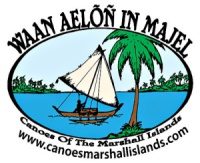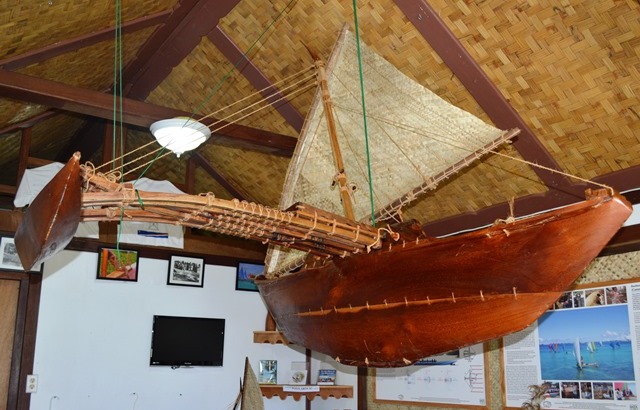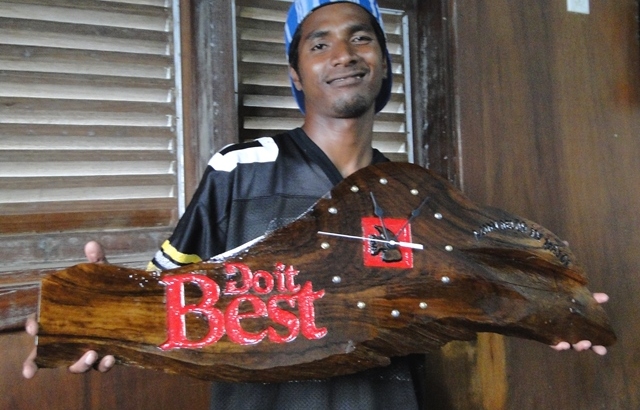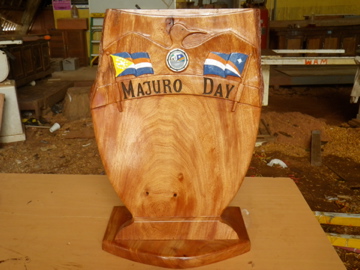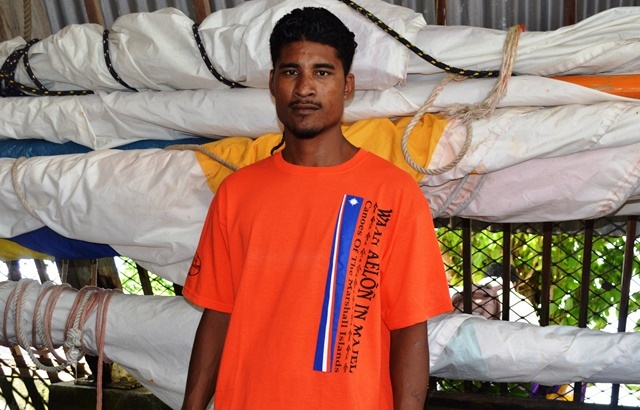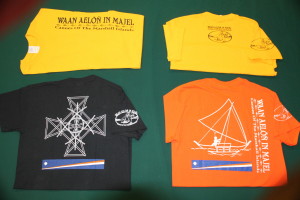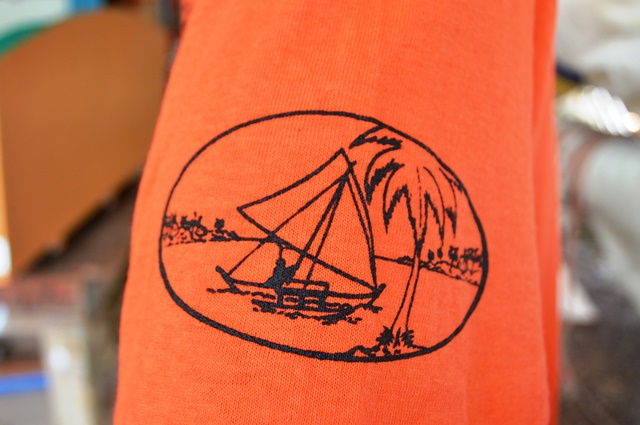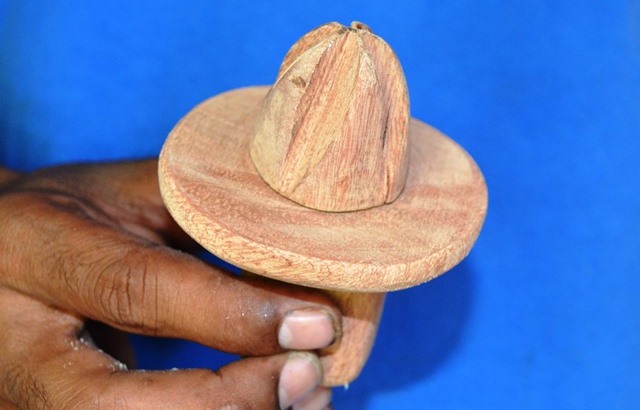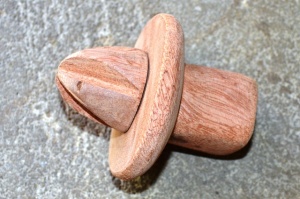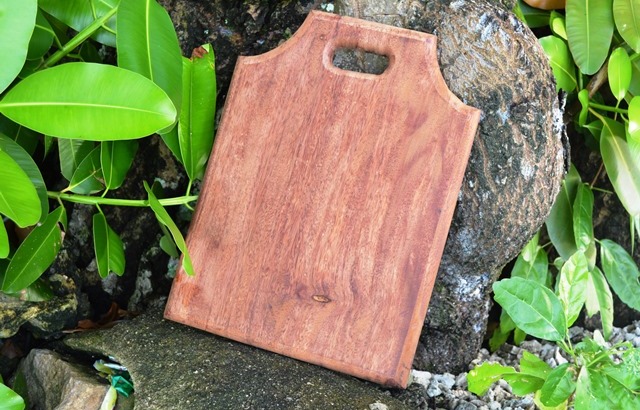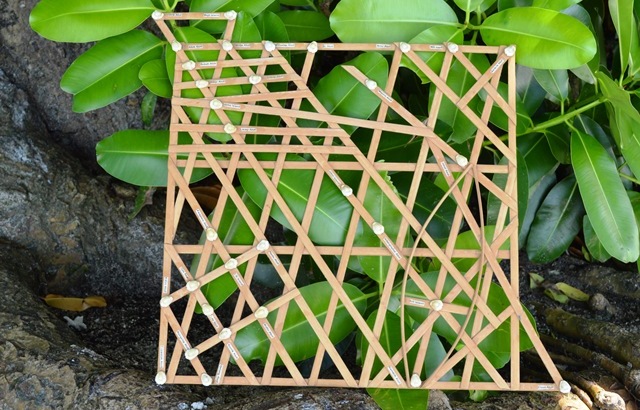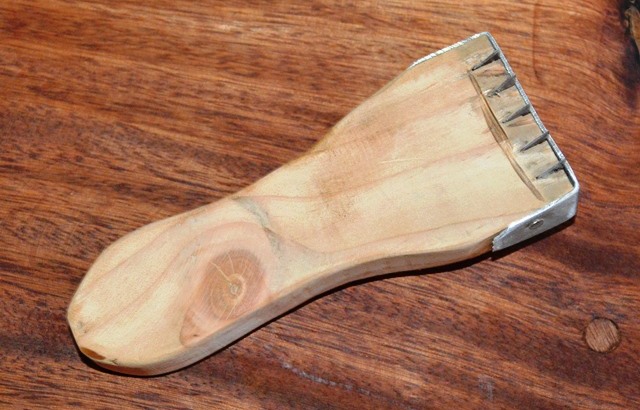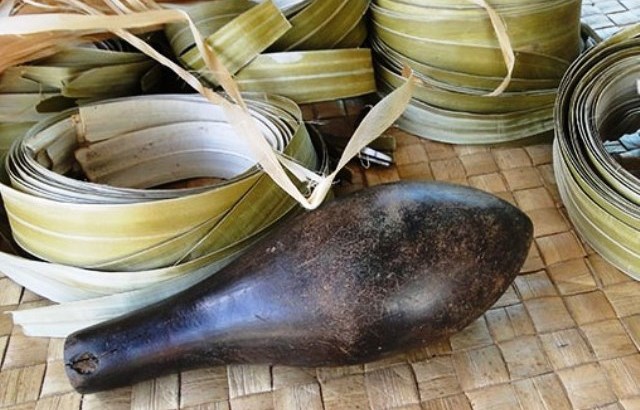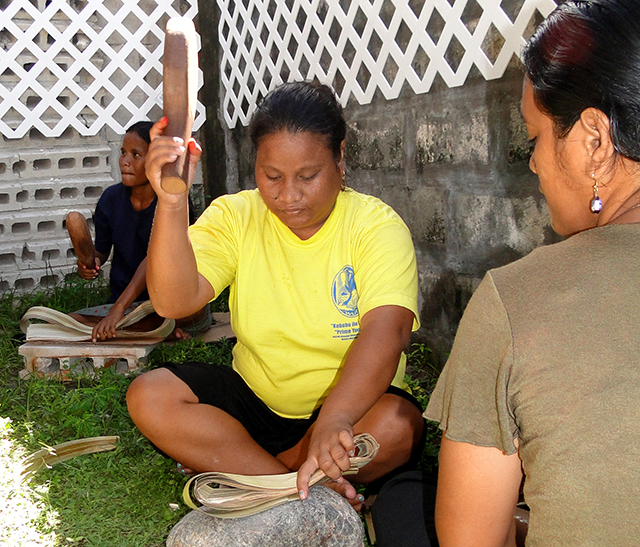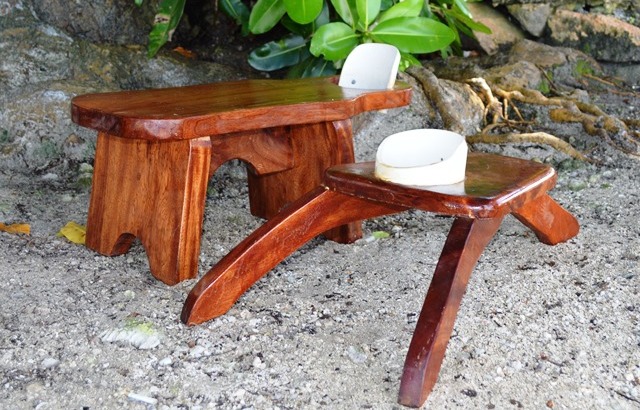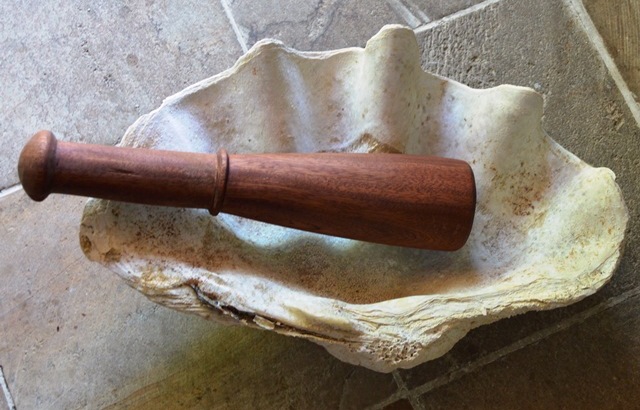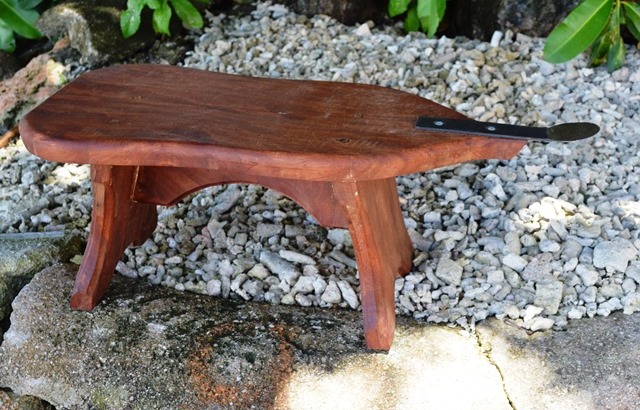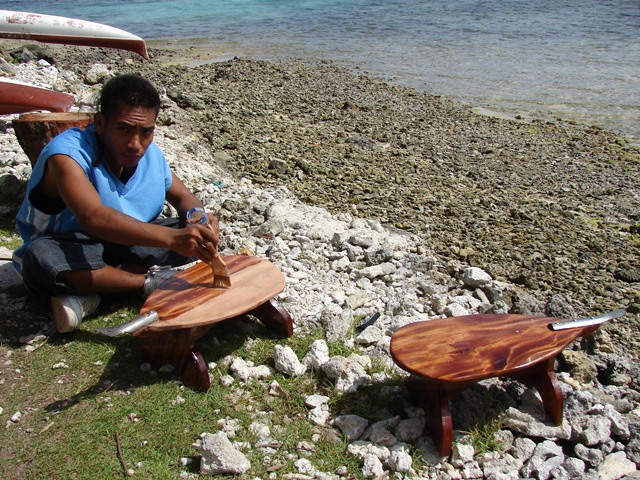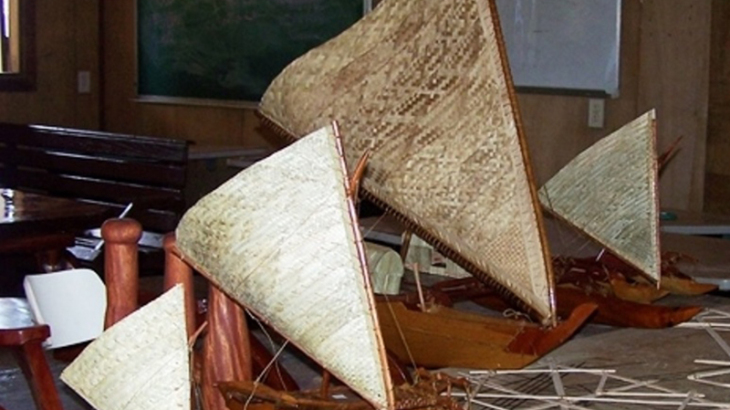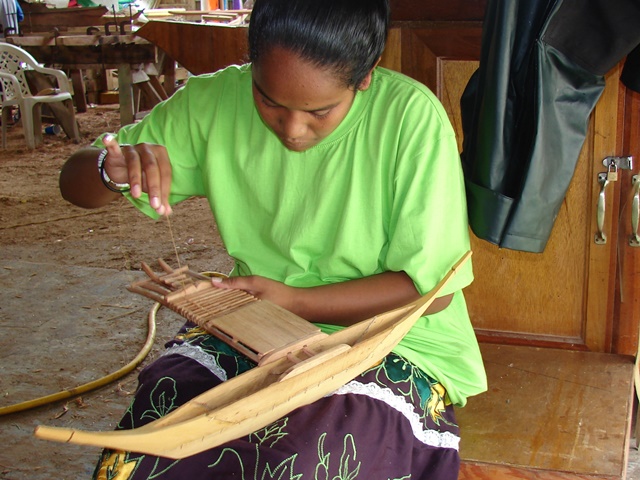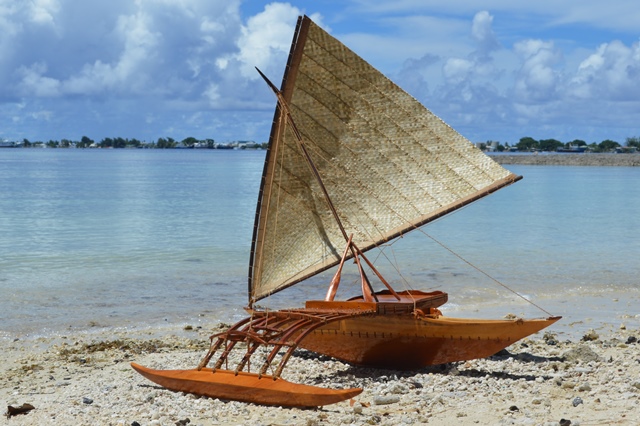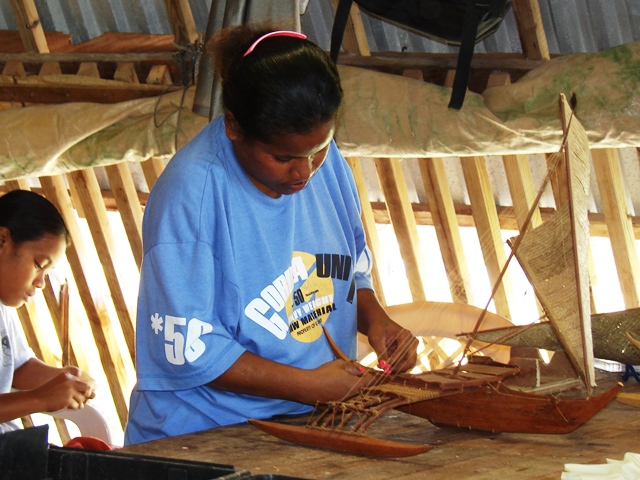Price: $45
WAM makes two varieties of pandanus pulpers: One to sit on, the other to sit next to. The fruit is scraped over the sharped edge of the PVC piping, bringing the juice out, which falls into a bucket or bowl placed beneath the pulper.
About pandanus: The pandanus tree grows up to heights of about 25 feet. Its trunk has aerial prop roots and long leaves up to 10 feet in length. The large edible fruit is called of bōb and is made up of many angular, wedge-shaped sections called keys that turn orange as they mature. It is likely that the pandanus is indigenous to the Marshall Islands and grows wild, but can be cultivated with very little effort.
Bōb, which is packed with vitamins and particularly Vitamin A, is usually eaten raw, but can be cooked. In the old days, many people preserved the fruit into a paste called mokwan or jāānkun. Canoe voyagers often took it with them as a main source of food.
Contact us to buy our product

An Ailuk family transports pandanus fruit by canoe. Photo: Arc Tracer

A pandanus tree with ripening fruit at Enemanet Island in Majuro lagoon.

A bunch of bōb on the dock at RRE Shoreline area.
